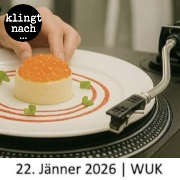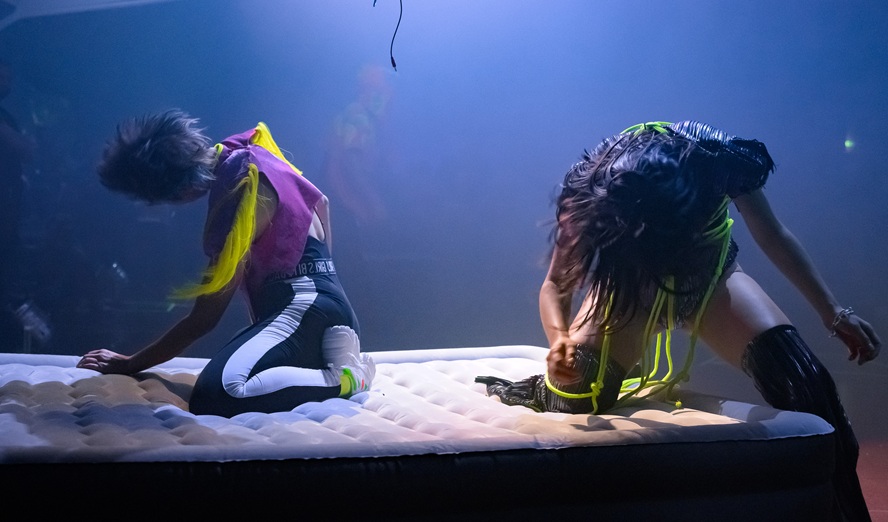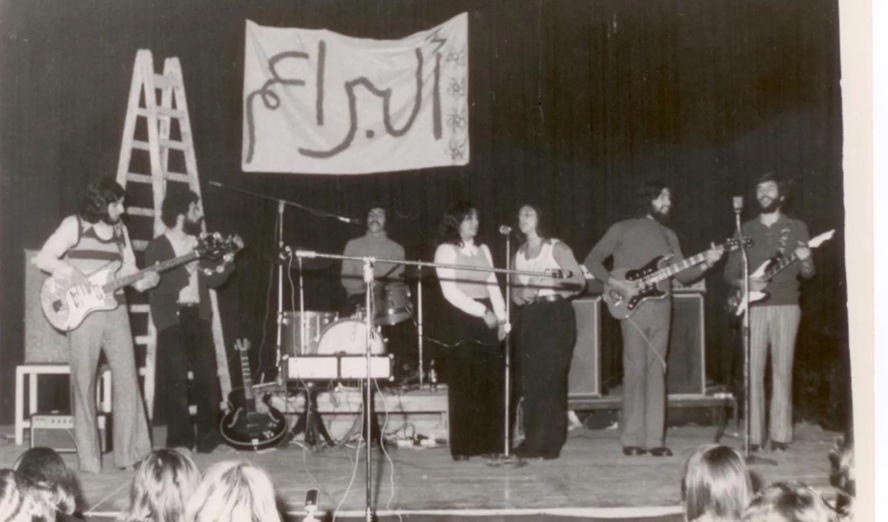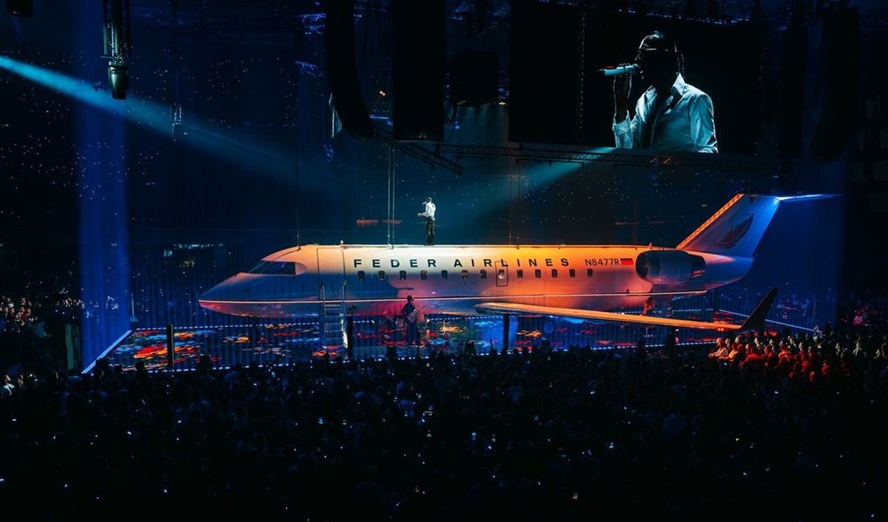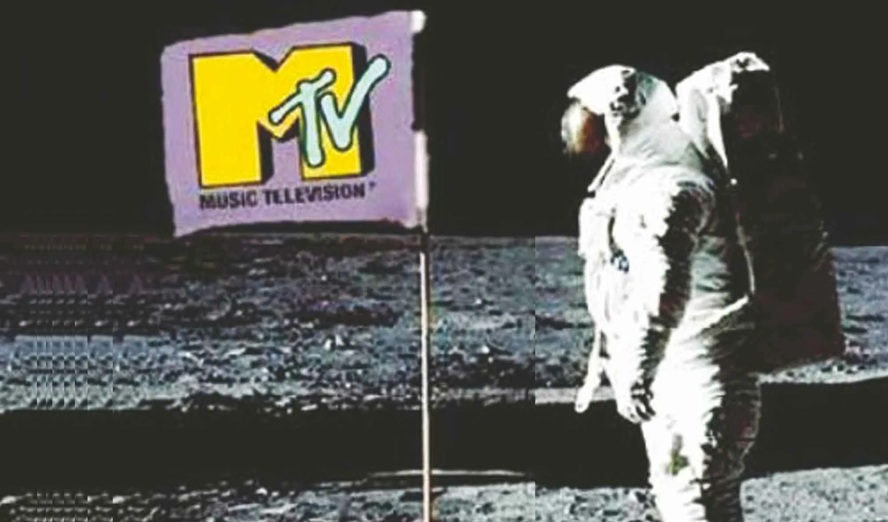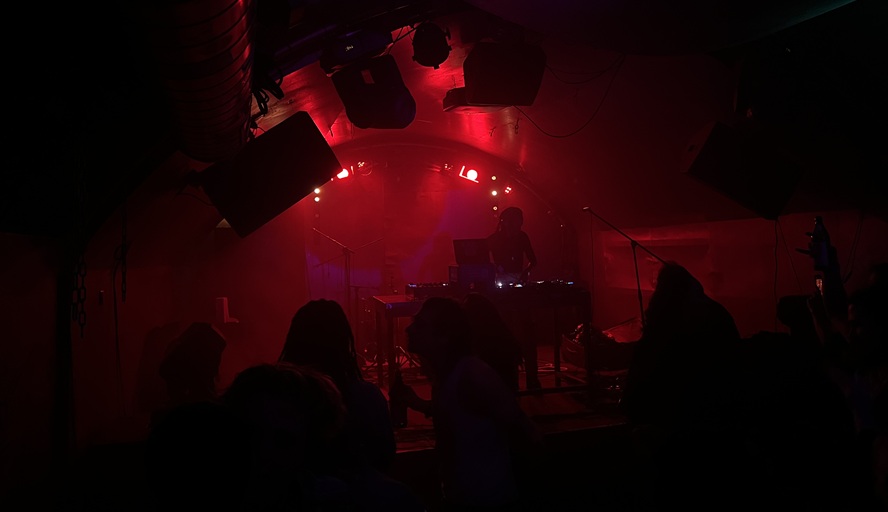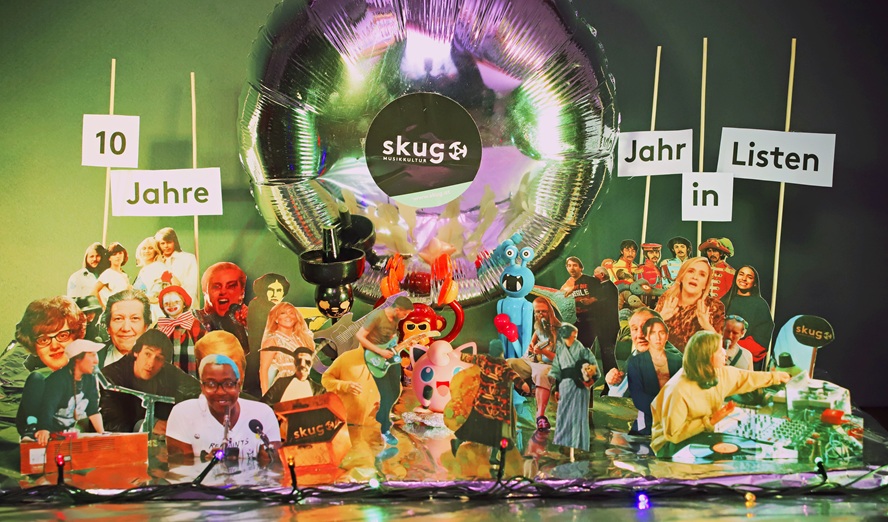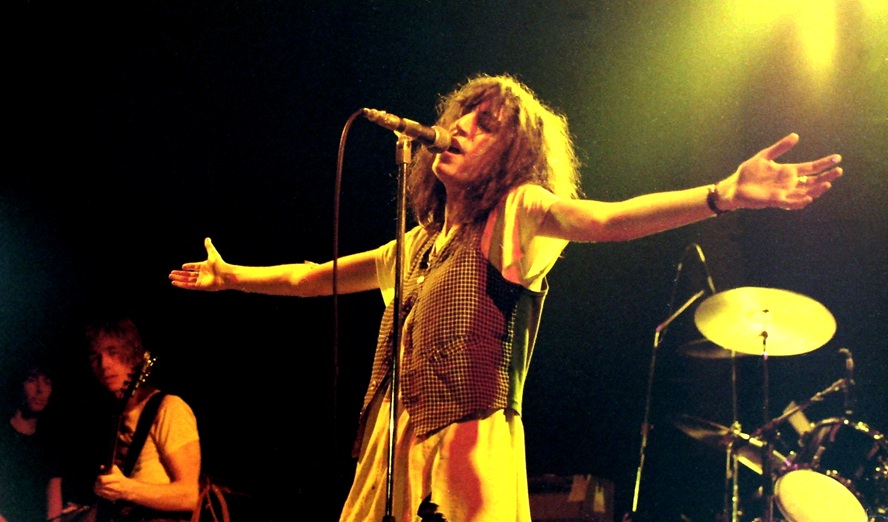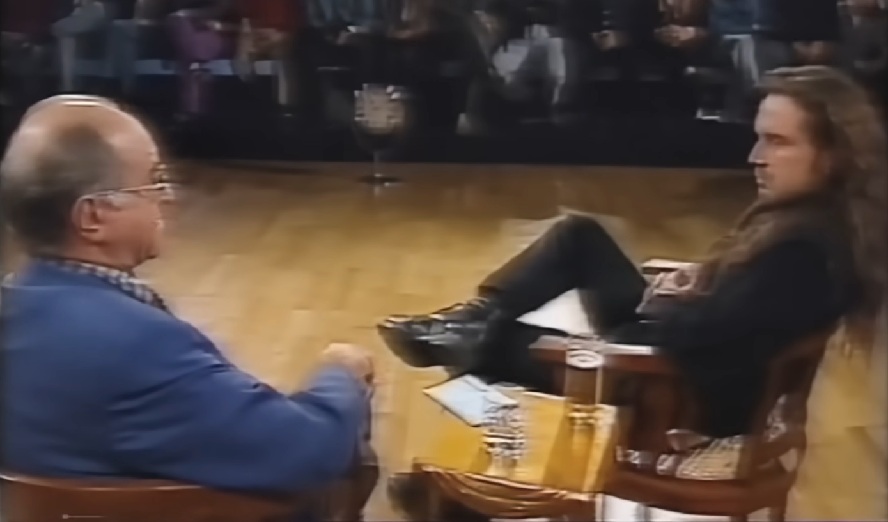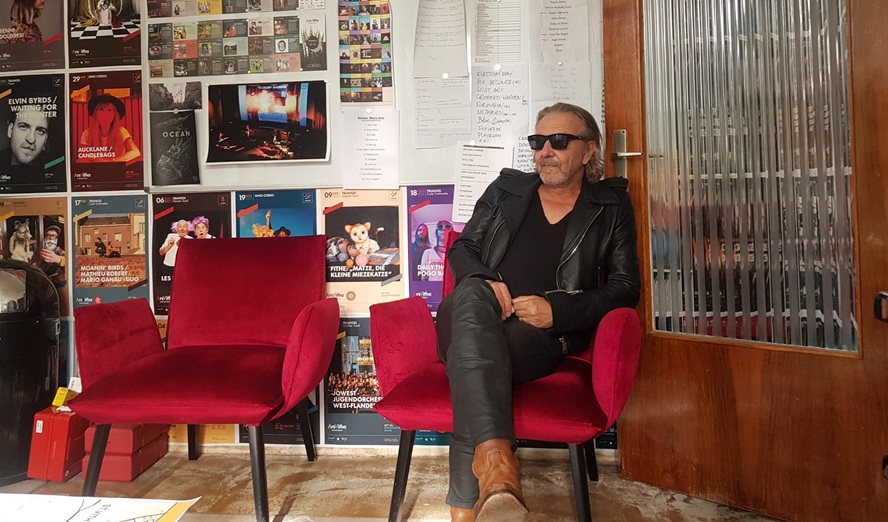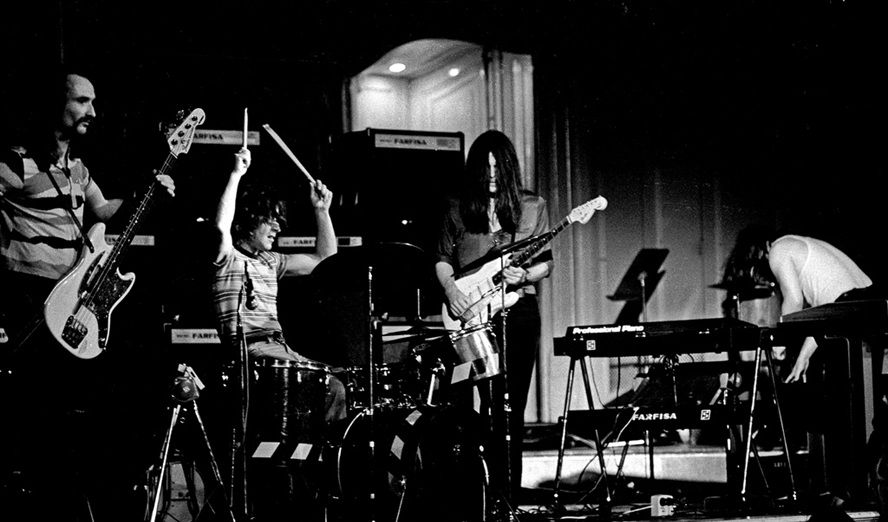When The Child was a Child, these questions came up:
Why am I I, and not You?
Why am I Here, and not There?
When did Time emerge, and unto where does Space extent?
Is Life under the Sun nothing but a Dream?
Are the Things I see, hear and smell nothing but chimeras of an imagined World?
Is there Evil, and are there Evil Ones?
How could I, who now Is, not have been before I Was?
And how can I, who Is, be no more, once?
(Peter Handke)
»There is no such thing as individual artistic work. every piece of music is the result of a gradual fabrication within the collective. there is no such thing as individual creativeness. all new ideas have already existed – somewhere between us.
in order to escape the exploitation campaigns and the battles of annihilation of the imperial music business, we shall not put up with the materialistic or symbolic satisfaction of us as „individuals???. What we want is recognition and respect for what we do in common, for our collective work. the capacity to take action can only emerge after particulars have lost their meaning.«
Please, could you define the relation between the decline of the artistic individual and the emerging potential that stems from this decline, as you state on your homepage? (See quote above)
M: In 2001 we realized that we gradually were developing into a collective. During practising and jamming we sensed a growing freedom regards to working with each other and with the material we produced. Before that, on an early stage of Mimi Secue, singer/songwriter structures were still in effect, but during the past year it turned into a feeling of collectiveness, opening towards every single one involved, and inviting spontaneous contribution during jamming and rehearsing. There are no more guiding rules, actually.
Adding to this development, to kick off our own label Karate Joe is our means to establish an independent and collectively organized pool for us, where we can network with other bands, and which is remote from the music industry. Well, we probably would not fit in there, anyways!
Do you consider your music as the materialised product of your personal, close interaction, in the sense of your self attribution »there is no such thing as individual artistic work. every piece of music is the result of a gradual fabrication within the collective. There is no such thing as individual creativeness. all new ideas have already existed – somewhere between us« ?
M: Yeah, you could say that. It actually sounds very reasonable! Be it during our rehearsal sessions or during a live performance, if one of us is not in the mood for one reason or the other, the whole thing fails. During live gigs, these effects become disastrous! It just doesn’t work out if we don’t sensually and emotionally acknowledge each other and if we don’t sense that we are actually an entity on stage.
M: One note on »The Collective«: To me, I tried to come to terms with what turned up during working as a band, which throughout the past year evolved more into a project. More and more people joined us, and the fringes of Mimi Secue are no longer clearly defined. Our shows featured video-art by the group »wr«, who are now a part of the supra-structure which we recently tend to call »collective«.
M: It is not only the core of us musicians working, but the group doing the video stuff with whom we collaborate closely on different levels and further develop and share our ideas.
Hence, the videos are not produced by yourselves actually?
M: Well, they are part of our work insofar as they correspond to our music, as the video people are heavily into our music and admit to be triggered by it. Which, in a way, makes them our videos to a certain extend. But, technically speaking, yes, they are not ours.
Are you, in reverse, at times inspired by visuals and imagery you perceive?
M: Up to now, that did not occur to me, at least not in the way that we saw a video and went »Alright, lets do a song to this video.« One can be inspired by imagery, but not to this immediate end.
M: I consider it a hard task to transform music into a picture or into imagery. The other way round could be more convenient.
On »collective« once more: Let me refer to Godspeed You Black Emperor, who established the concept of the collective as their stance against a fetishized individualism. As they can be perceived as being implicitly political, would you consider Mimi Secue as a political band, regards to your involvement with the »Volkstheaterkarawane«?
M: Well, we are not closely involved, we actually did only one show during a two-day theatre/concert event, which was to raise funds for those partaking in the Genoa protests.
We joined for a show because one of the video-artists organized the event.
One hence could not refer to us a being a political band.
The decision to organize as a collective was thus not a socio-political one?
M: No. It’s just what came about during our working together.
M: For us, to work and think as a collective is not assumed as strategy against This, but rather in pursue of That.
Your music: Aural layers and soundscapes are most prominent with impro and electronic music, rather than with music rooted in guitar rock.
How did this come about, are you in some ways affiliated with electronic or electro-acoustic music? Or are you so bold as to actively re-introduce electro-acoustic soundscapes into the realm of »Rock’n’Roll«?
M: Both of the above! To reach our current level was a whole lot of work for us. It emerged first from endless rehearsing improvisation, and second from my personal electro-acoustics background as contribution to the band. I try to merge both sound worlds, and hit on my mates by playing this stuff to them. To gather various inputs and to open towards differing influences, we regularly listen to all kinds of music before rehearsing.
M: Throughout the past three years, it developed into a ritual: We just sit together and listen to music before starting to practise or work on our own stuff, and it rubbed off on us, be it guitar rock or electro-acoustics.
M: Our main base, our founding is in Rock, the electronics are merely influences.
M: I would not support that electronics had any real impact on us.
M: What I like most, and as far as I’m concerned all of us try to do, is to get our point across with least material effort. To strip off all extravaganza.
It is calculated and planned reduction?
M: Definitely, yes. Even so technically speaking, since none of us is that good a musician, which should not be necessary, anyways . . . We almost border on childrens songs. Our lack in instrumental skills helped us to develop our rather reductory style..
M: But, we do not feel constrained by these limitations, it’s just the way we want to work.
It’s plain wrong to say we are not able to do otherwise.
M: Every one of us is playing instruments for 10 years or more now, so there definitely is a certain growth in skills.
Your rehearsing is mostly improvisation, but your shows are exactly played to the point.
M: Yes, what we publish, be it on CD or during a concert, is strictly structured, with least improvisation. Within each musician’s area, there might be few impro parts, but the songs as such do not feature any. They are at times based on improvisation and developed there from, but are defined and structured very thoroughly.
M: It would be a thrill to move towards improvising live, but up to now, we fear possible blackout situations. To provide undefined space during live sets and within songs would be great, but actually our songs are clear-cut, and there’s nothing beyond them. We should aim to merge both concepts.
On your homepage, you state:
»Mimi Secue aims not only to re-establish the close correlation of bodily felt and visually perceived live intensity, which music lost on its way into the depths of the computer, but to take it to the next level.«
Do you adhere to the myth that electronic music is cold and lifeless?
M: Well, the quote indeed does sound very hostile.
M: It’s hard to exactly put your finger on. The quote is on the song and the clip »Sigma«, the one with the merry-go-round. »Sigma« insofar opposes electronica as it presents imagery and sound as a perceived unity.
M: Although »Sigma«, to me, is of an almost electronica structure.
Your songs are very intimate. To which extent do you reveal yourself, perhaps in a exhibiting way?
M: There’s nothing exhibitionistic about it, really. It’s more about closeness, especially during live shows, e.g. at the »Wirr«, one of the best locations we played so far, as it allowed us to play closely to the audience,
At the Wirr, there was no spatial gap between stage and audience, other than at the Porgy & Bess. How did you experience this artificial and seperatory elevation between artists and audience? Do you consider it as overcome coded roles re-established and a close relation destroyed?
M: It heavily depends on the location itself, and we try to make the best of every single one. The situation at the Porgy & Bess was special, since it is a wide stage and we had a great audience, although we were this remote from them. It was not our favourite size of stage, but that don’t matter as long as you work with and rearrange the actual space..
M: We chose the Wirr for its intimate atmosphere, the living room-feeling. Well, theirsound wasn’t where it’s at, but what to do about it?
M: To my opinion, even a larger location, like the Porgy & Bess, can provide an intimate atmosphere by a fitting ambient. The point is, that it’s easier to manipulate and rearrange smaller venues to your own taste, and when playing larger venues, you have to get along with what they fixed for you.
M: But, even at bigger venues our stage setting and us changing the instruments triggers the over-all atmosphere.
On the moods in your music. One article in Sweden put it this way: »Mimi Secue: Heartbreaking impact on postmodern souls desire«. How do you interpret this ascription?
M: Now, we better call Sweden!
Is it, that you feed the soul’s longing for wholeness and comforting in »postmodern« times?
M: Yes, that’s it. But you would need a much more complex explanation to satisfyingly put it down.
M: But good a statement, nonetheless!
M: I believe it depends on the listener and her or his pre-existing mood, whether we get something across, or evoke melancholy.
M: To evoke melancholy became less and less important to me.
Melancholy can be a means to wake up to joy. You seem to enjoy the whole thing, where in large parts of the electro-acoustics and improvisation scene, fun and joy are sacrileges.
M: Well, no longer. They even come to like melancholic sound.
M: Especially when we started out, people referred to our sound as depressed, which nowadays is reversed. To me, our music is of a happy tone and I can enjoy listening to it.
M: It is soothing, comforting and elevating music. It’s not joyful by itself, but that’s where it leads up to.
M: To me, melancholy, opposed to depression, always implicates to move ahead. One could say it is joyful music of certain uplifting qualities.
M: You always should emphasize the positive aspects of melancholy.
You once stated that the intensity of your music is on a constant level, as you as individuals are levelled. Did you ever long for catharsis, for sound orgies and internal cleansing?
M: Individually speaking, the first times i went to practising i was overwhelmed just by being there and playing there. Without really knowing my band mates, it nonetheless felt great to let go of what was going on outside. All the things i wondered about were blown away, head cleaned, so to speak. It’s individually different, but once you succumb to quietness, you start to relax.
M: Exactly. Adding to that, I would say that we do even have passages with a certain culmination quality to them, yet not as excessive as Godspeed do. For us, it is a small means to break free, but not that important after all.
For a wrap up, let’s collect random associations to the terms I ascribe to your music:
Spirituality:
Always a part of music. Of every music!
To me, spirituality is rooted in the act of associating creatively, and in this respect, it affects us.
Sensitivity:
A term abused by the Catholic Church.
Well, I use my hands to play, use my ears to listen, hence I use my senses.
Landscape:
Open and wide space, necessarily, open space basically.
Although there a beautiful urban landscapes to be found.
The heath of Parndorf.
Darkness:
Intimate, cosy, soothing.
As long as it is not the Absolute darkness.
Repetition:
Hypnotic.
Blues:
Style, mood.
Beautiful guitars, gorgeous amps, sorrow.
Progress:
The older the instrument, the better the sound.
It depends: progress can be saddening, but also can be important.
Hard to define, really.
Progress is important, just look at us!
Quiet is the new loud
Hyped.
Reminds me of Einstürzende Neubauten.
Schweinerock:
Poor pigs!
Piece of garment.
I’m vegetarian.
Web:
www.mimisecue.com
www.karate-joe.com
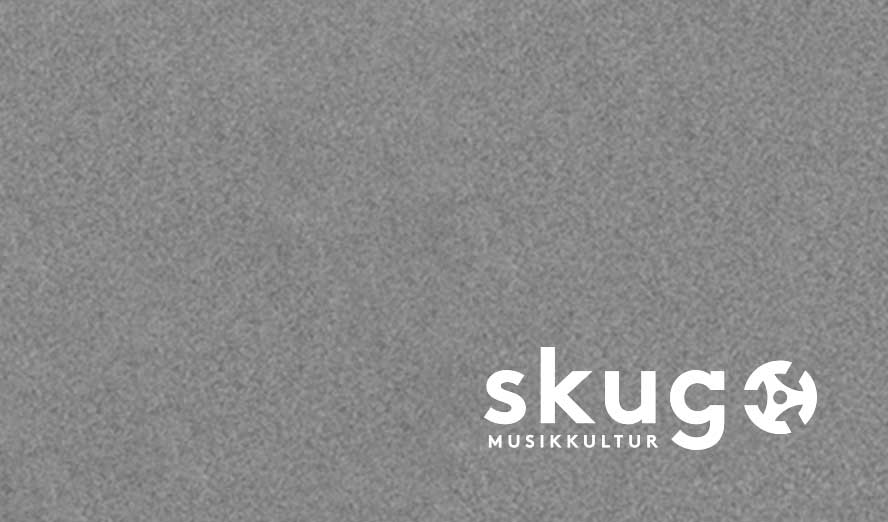
Mimi Secue – D Assoziative Machinery
Mimi Secue are a bunch of adolescents from the Burgenland, relocated to Vienna.
Mimi Secue is a collective, hence all their answers and responses in this interview are marked »M«.
Mimi Secue spreads a vast aural canvas, inviting their listeners to project their own imaginary visual track there upon. Let's start out with my personal associations first, and then proceed to Mimi Secue's.

Unterstütze uns mit deiner Spende
skug ist ein unabhängiges Non-Profit-Magazin. Unterstütze unsere journalistische Arbeit mit einer Spende an den Empfänger: Verein zur Förderung von Subkultur, Verwendungszweck: skug Spende, IBAN: AT80 1100 0034 8351 7300, BIC: BKAUATWW, Bank Austria. Vielen Dank!


